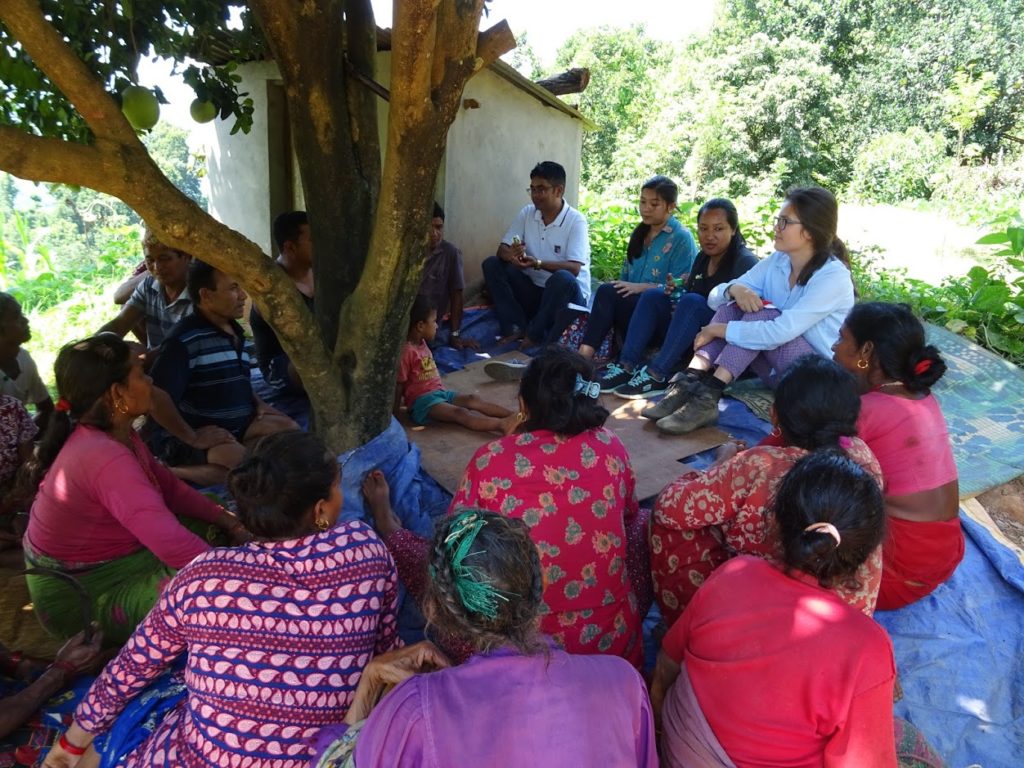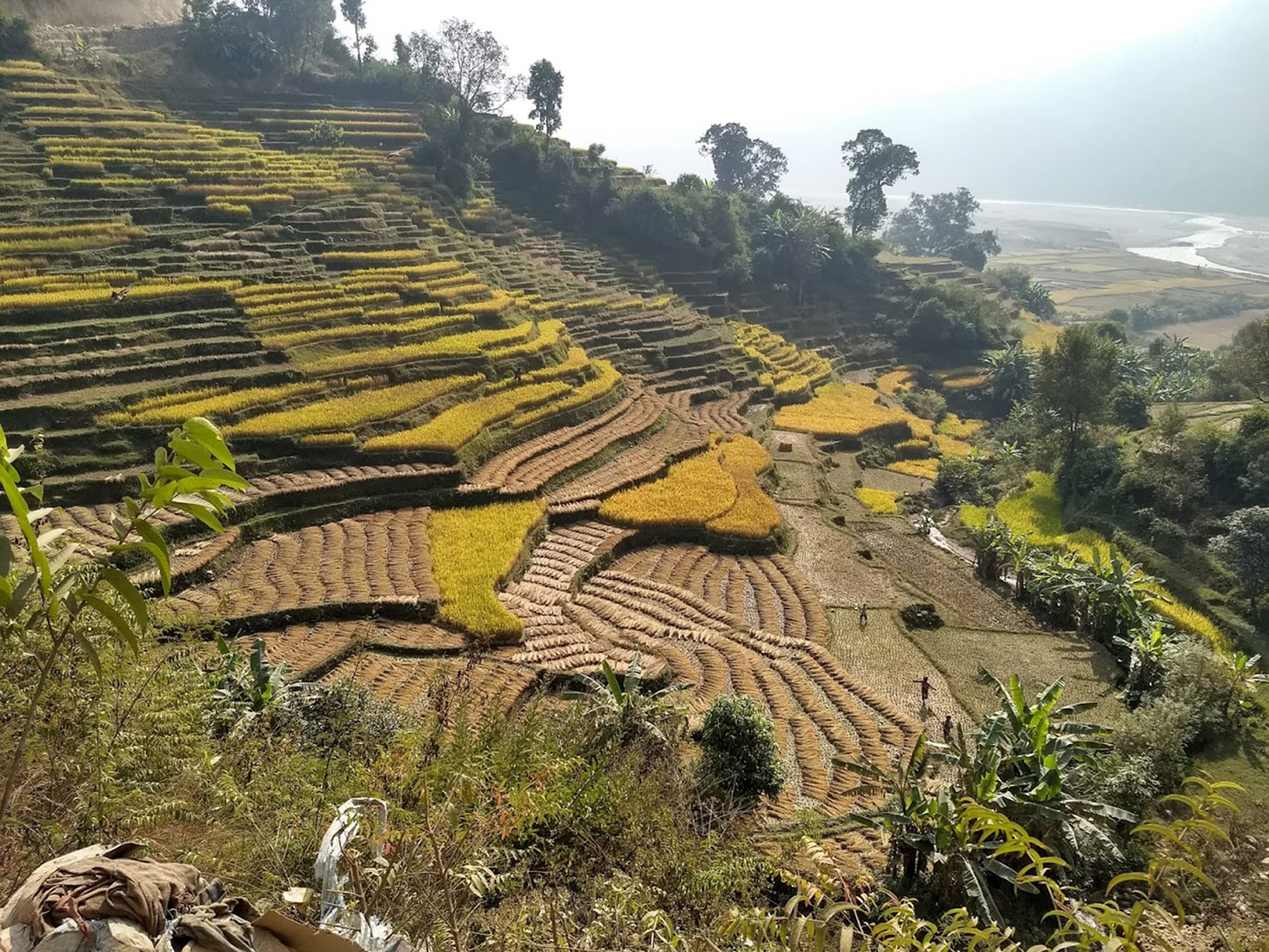‘Together with a fellow student I spent four months in Nepal, evaluating a Sappros project. Sappros is an NGO which runs livelihood projects in Nepalese villages, working on water systems, among other things. I mainly looked at water management, while my fellow student focused on earthquake resilience. We went into the field three times for five days to interview the participants in the project. We also held community meetings in which we asked people to draw their village and their water system, so we got an idea of how they saw them. A couple of project staff members came along on those trips; they were our interpreters. I also talked to several experts for my research. And I had a lot of time to spare to talk to other interesting organizations and people. We went to a conference on climate change in the Himalaya that WUR was involved in.

Farmers markets
We lived in Patan, right by the capital, Kathmandu. In the evenings and at weekends we made trips like tourists do or visited places lots of expats go to, like farmers markets and cafés. I also visited a friend of mine who happened to be doing an internship in Kathmandu. Most weekends I did nice things with her and other internationals I met there. Nepal has a lot of public holidays so the office was often closed, and everyone went back to their home area. So I had quite a lot of time off.

Relaxed mentality
Hardly anything goes to plan in Nepal. Appointments, traffic: it’s all chaotic. And the roads are terrible. For our field trips we were driven up and down by a driver. Once we were driving in the jeep along a dirt road to the village where we would conduct interviews. We looked out of the window down into a valley where a car lay in pieces. “Oh yes, a few months ago someone swerved off the road and now he is dead,” said the driver when we asked. That’s how dangerous it is.
Compared with the Dutch, the Nepalese are very helpful. I think that’s because they are a lot more relaxed about planning and time. That means people often turn up late, but they do make time for you. I spent several whole afternoons talking to an expert about my research. The relaxed mentality took some getting used to, but after I while I really enjoyed the way not everything had to be quick and efficient. Now I’m back, I miss that a bit.’
